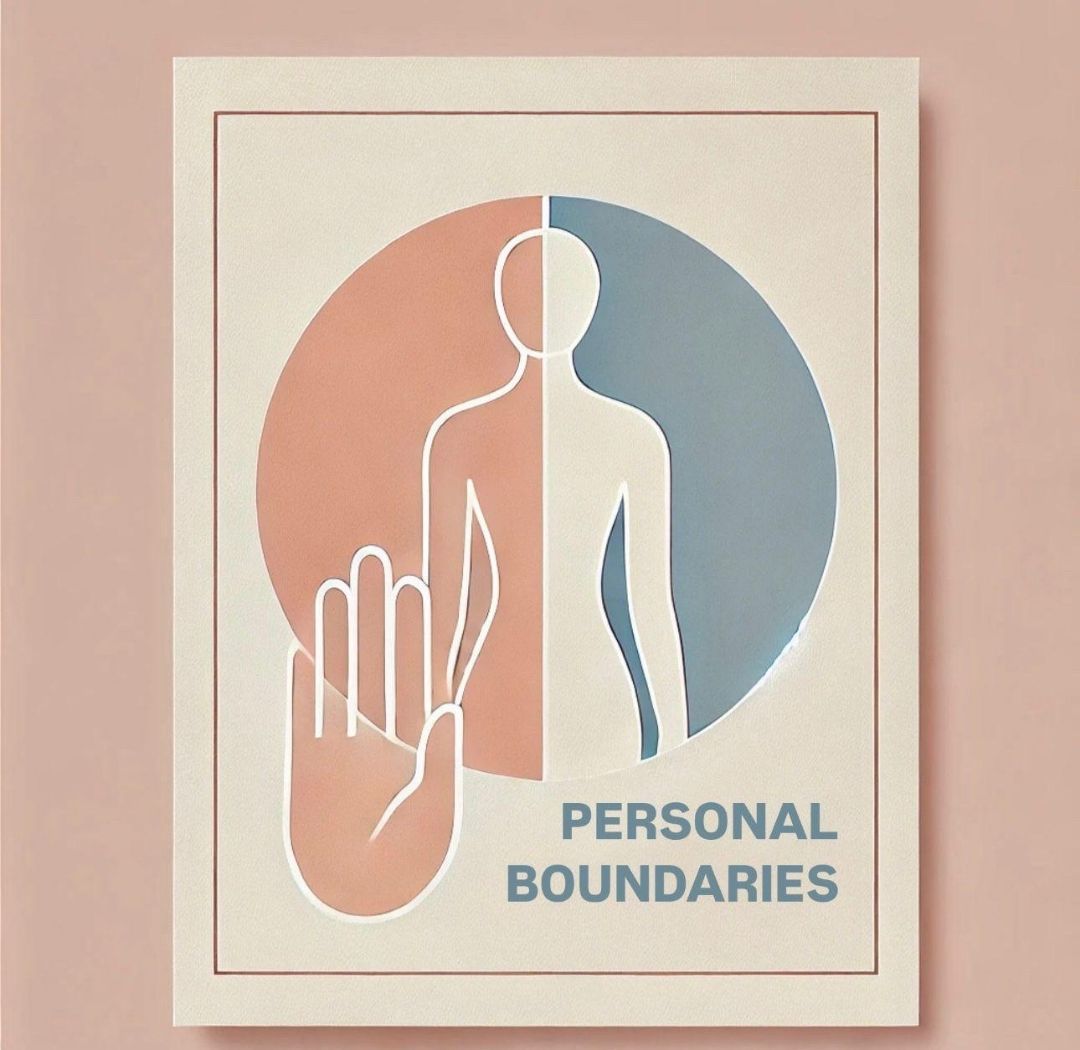The power of boundaries: What are they & how to set them
Learn what boundaries truly are, why they’re hard to set & how to build them with practical tools for confidence, clarity & self-respect in life.
Reading time: 5,12 minutes

I used to think boundaries were pretty straightforward.
You tell people what you’re okay with. You say “no” when you mean no. You take space when you need it. Simple, right?
Not exactly.
Over the past couple of years, I’ve been on a personal mission to understand boundaries, why we struggle with them, what they actually look like in real life, and how setting them can completely transform our energy, confidence, self-esteem, and relationships. I have also noticed that women in their mid-20s to late 30s struggle with boundaries even more than other groups.
What are boundaries?
Let’s start with what boundaries actually are. They’re not walls. They’re not ultimatums. Boundaries are the emotional, mental, physical, and time-based limits we set to protect our energy, values, and well-being. They’re a form of self-respect. A way of saying, “This is what I need to stay whole.” Think of them as your internal compass. They guide how you want to be treated, how you show up in relationships, and how you care for your own peace.
So if boundaries are so essential, why do so many of us find them hard to set?
Why do we struggle to set boundaries?
Through our workshops and one-on-one sessions, we found that this isn’t just about not knowing what to say. Our brains are literally wired to keep us connected, even at the expense of our own needs. From an evolutionary standpoint, belonging to a group meant survival. And deep down, our nervous systems are still running that same script.
When we sense conflict or disapproval, our brain perceives it as a threat. That’s why saying “no” can trigger anxiety, guilt, or even panic. The part of our brain that handles threat detection lights up, and suddenly, a simple boundary starts to feel like emotional danger. Add to that the feel-good rush of being liked or accepted, and you’ve got a brain that’s been trained to people-please. Every time we accommodate others, even when it costs us, we get a small hit of relief. Over time, this becomes a reward loop. We say yes when we mean no. We smile through discomfort. We overextend, just to keep the peace.
For some women, that over-accommodation runs even deeper. If you’re highly empathetic, your brain mirrors others’ emotions more intensely. You don’t just understand someone’s discomfort, you feel it. And that can make it even harder to hold your ground. When someone else is upset, you might take it on as your responsibility to fix it, even if it means crossing your own limits.
All of this is compounded by chronic stress or low self-esteem, which weaken the part of our brain responsible for decision-making and self-regulation. Without conscious effort, we default to what feels “safe”: avoiding conflict, staying agreeable, overdelivering, and neglecting our own needs in the process.
The problem is, that safety is short-lived.
When we don’t set boundaries, we slowly start to lose ourselves. We let family, partners or children take over our lives. We feel burnt out, taken for granted, emotionally drained. We say yes while our body screams no. And even when no one else is asking for too much, we begin to feel resentful because we haven’t given ourselves permission to say enough.
But it doesn’t have to stay that way.
How to set healthy boundaries?
Learning to set boundaries is a skill. It starts with self-awareness, tuning into those subtle signals of discomfort, irritation, or exhaustion. Those aren’t random mood swings. They’re clues. Clues that something needs adjusting. Boundaries often come into focus when we ask ourselves, “What am I no longer available for?” or “What do I need more of to feel grounded and well?”
Once you start identifying your limits, the next step is practicing how to express them, clearly and kindly.
Phrases that work
You don’t need to over-explain. Sometimes a simple, “That doesn’t work for me” or “I need to think about that before saying yes” is more than enough. It’s not about being harsh. It’s about being honest. Those phrases have massively helped me internalise the reasons for struggling to say no.
From guilt to growth
In the beginning, it might feel awkward. You might worry about letting people down. Guilt might creep in, and that’s okay. Guilt is often just a sign that you’re doing something new, not something wrong. When those feelings show up, remind yourself that setting a boundary isn’t just about protecting your energy, and it’s about creating healthier, more authentic connections. When you’re honest about what you need, you give others permission to do the same.
There’s no perfect way to do this. You’ll wobble. You’ll adjust. But every time you honor your own limits, you strengthen your self-trust. You teach your nervous system that it’s safe to have needs. That you don’t have to abandon yourself to belong.
Boundaries are bridges, not walls
Boundaries aren’t barriers. They’re bridges. Bridges to more aligned choices, deeper relationships, and a more grounded version of yourself. We can’t help everyone, please everyone, and keep everyone around us happy. Our responsibility is to prioritise our own mental and physical health.
So if you’re feeling stretched thin, start here: When was the last time you felt your boundary was crossed? What would it feel like to honor that boundary now?
This is your permission to start. Not to push others away, but to come back home to yourself.
Christie
Co-founder, selfsquared